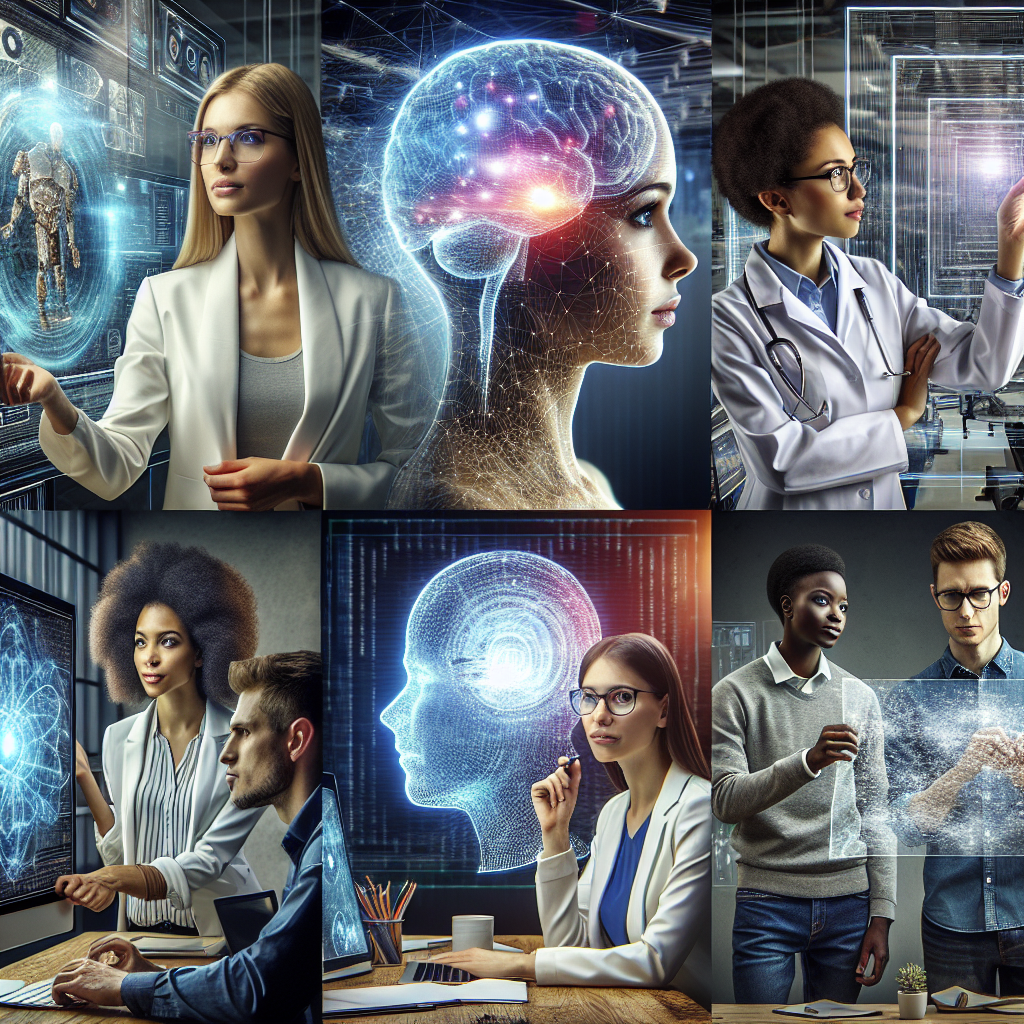Artificial General Intelligence (AGI) is a concept that has captured the imaginations of scientists, researchers, and the general public alike. AGI refers to a machine intelligence that possesses the ability to understand, learn, and apply knowledge in a way that is indistinguishable from human intelligence. While we currently have narrow AI systems that can perform specific tasks with great efficiency, such as image recognition or natural language processing, AGI represents the next frontier in artificial intelligence research.
The development of AGI is a complex and challenging task that requires the collaboration of experts from a wide range of disciplines, including computer science, cognitive psychology, neuroscience, and philosophy. In this article, we will introduce you to some of the key figures who are leading the charge in the development of AGI, and explore their backgrounds, research interests, and contributions to the field.
Meet the Minds Behind the Development of Artificial General Intelligence
1. Demis Hassabis
Demis Hassabis is a British artificial intelligence researcher, neuroscientist, and entrepreneur. He is the co-founder and CEO of DeepMind, a London-based AI research lab that was acquired by Google in 2014. Hassabis is known for his work in reinforcement learning, a machine learning technique that allows AI systems to learn through trial and error. He has also conducted research in cognitive neuroscience, focusing on the neural mechanisms underlying human memory and decision-making.
Hassabis’s work at DeepMind has produced several groundbreaking achievements in the field of AI, including AlphaGo, a program that defeated the world champion Go player in 2016. His ultimate goal is to develop AGI that can surpass human intelligence in all cognitive tasks.
2. Yoshua Bengio
Yoshua Bengio is a Canadian computer scientist and one of the pioneers of deep learning, a subfield of AI that focuses on training neural networks with multiple layers of interconnected nodes. He is a professor at the University of Montreal and the co-founder of Element AI, a Montreal-based AI research lab. Bengio’s research interests include deep learning, reinforcement learning, and generative modeling.
Bengio’s work has had a significant impact on the field of AI, and he has received numerous awards for his contributions, including the Turing Award in 2018. He is a strong advocate for the development of AGI that is aligned with human values and ethics, and he believes that AI has the potential to solve some of the world’s most pressing problems.
3. Nick Bostrom
Nick Bostrom is a Swedish philosopher and the director of the Future of Humanity Institute at the University of Oxford. His research focuses on existential risk, the ethics of artificial intelligence, and the implications of emerging technologies for humanity. Bostrom is the author of “Superintelligence: Paths, Dangers, Strategies,” a seminal book that explores the potential risks and benefits of AGI.
Bostrom is a leading voice in the debate over the ethical implications of AI, and he has warned of the potential dangers of developing AGI without adequate safeguards in place. He argues that AGI has the potential to greatly benefit humanity, but it also poses significant risks if not properly managed.
4. Ilya Sutskever
Ilya Sutskever is a Russian-Canadian computer scientist and the co-founder of OpenAI, a San Francisco-based AI research lab. He is known for his work in deep learning, particularly in the development of recurrent neural networks and sequence-to-sequence models. Sutskever’s research interests include reinforcement learning, natural language processing, and generative modeling.
Sutskever’s work at OpenAI has produced several notable achievements, including GPT-3, a language model that can generate human-like text. He is a strong advocate for the development of AGI that is safe, transparent, and aligned with human values, and he believes that AI has the potential to greatly enhance human capabilities and solve some of the world’s most pressing problems.
FAQs
Q: What is the difference between narrow AI and AGI?
A: Narrow AI refers to AI systems that are designed to perform specific tasks with great efficiency, such as image recognition or natural language processing. These systems are limited in scope and cannot generalize their knowledge to new tasks. AGI, on the other hand, refers to a machine intelligence that possesses the ability to understand, learn, and apply knowledge in a way that is indistinguishable from human intelligence. AGI represents the next frontier in artificial intelligence research.
Q: What are some of the potential benefits of AGI?
A: AGI has the potential to greatly enhance human capabilities and solve some of the world’s most pressing problems. For example, AGI could revolutionize healthcare by developing new treatments for diseases, improve transportation systems by reducing traffic congestion, and enhance scientific research by analyzing vast amounts of data. AGI also has the potential to automate tedious and dangerous tasks, freeing up humans to focus on more creative and fulfilling pursuits.
Q: What are some of the potential risks of AGI?
A: While AGI has the potential to greatly benefit humanity, it also poses significant risks if not properly managed. For example, AGI could be used for malicious purposes, such as autonomous weapons systems or surveillance technologies. AGI could also lead to widespread job displacement, as AI systems take over tasks that were previously performed by humans. Additionally, there are concerns about the ethical implications of AGI, such as bias in AI systems or the potential for AI to develop its own goals that are not aligned with human values.
In conclusion, the development of AGI is a complex and challenging task that requires the collaboration of experts from a wide range of disciplines. The key figures introduced in this article are leading the charge in the development of AGI, and their work has the potential to greatly benefit humanity. However, it is important to consider the potential risks of AGI and to ensure that AI systems are developed in a safe, transparent, and ethical manner. By working together and addressing these challenges, we can unlock the full potential of AGI and create a brighter future for all.

